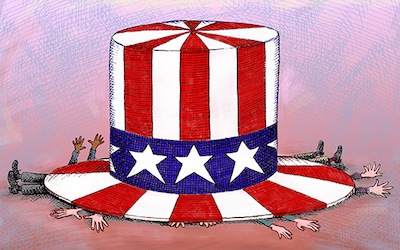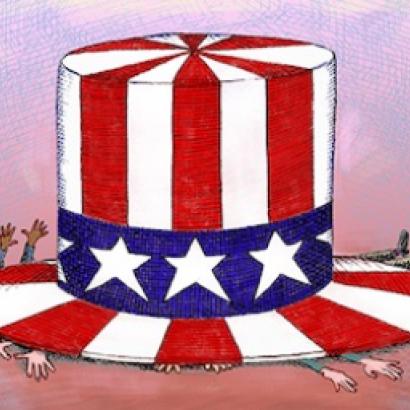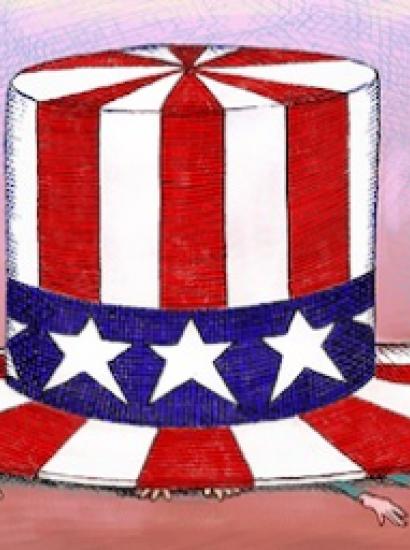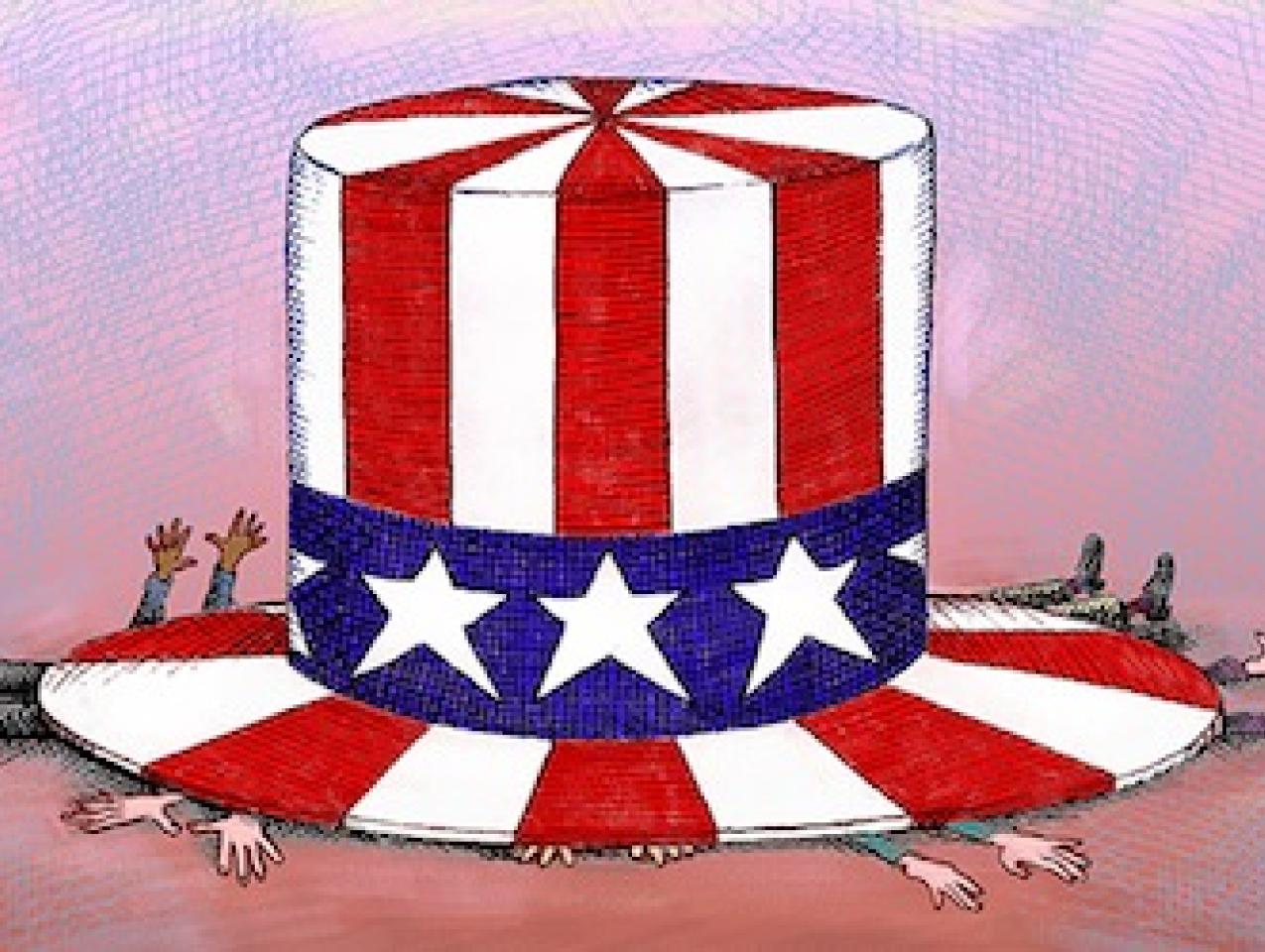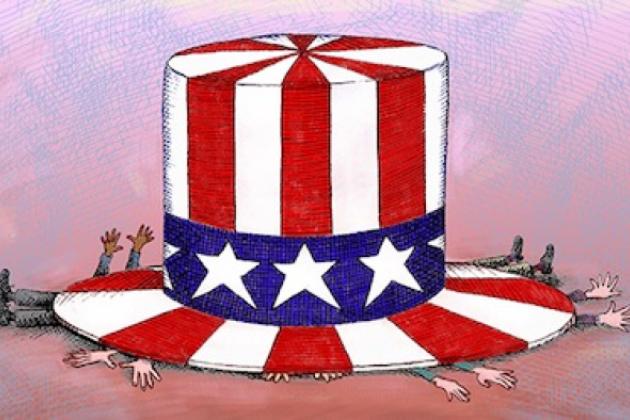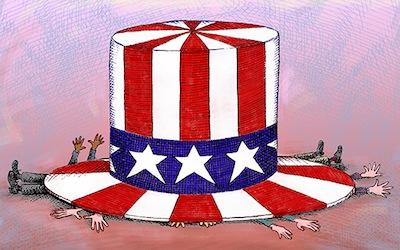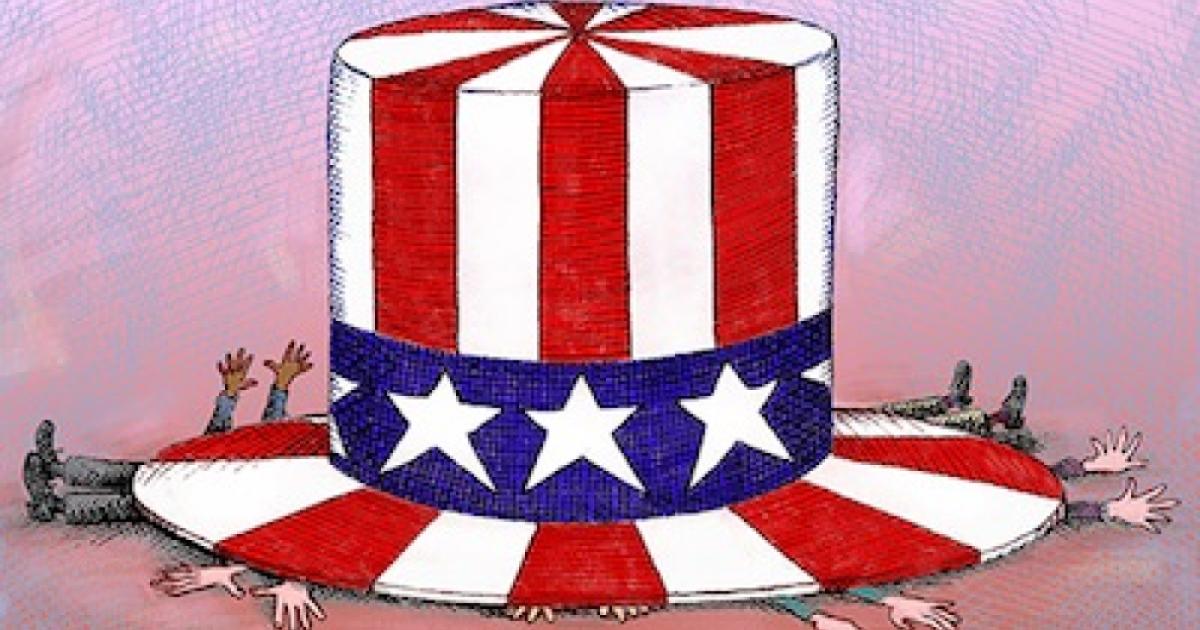The Obama presidency has had very little legislative success. Even the signature Patient Protection and Affordable Care Act is imploding, and was dubbed a “train wreck” by one of its own Senatorial authors. The lead-from-behind retrenchment abroad from America’s traditional leadership role has won few adherents. The Benghazi tragedy and the series of alphabet-soup debacles involving the IRS, the NSA, and the AP journalists are the most disturbing political scandals we’ve seen since the Nixon administration.
What, then, is the Obama legacy? An insidious politicization of almost everything. Obamism has become a holistic concept of “fundamentally transforming America” that, like all ideologies, cannot be assessed solely by concrete laws and policies, but rather through a change in the mentality and spirit of Americans and those who govern them. Obama early on emphasized in messianic fashion that his hope-and-change agenda was not to be adjudicated by traditional metrics, but involved a cosmic transformation of hearts and minds: “I am absolutely certain that generations from now, we will be able to look back and tell our children that this was the moment when we began to provide care for the sick and good jobs to the jobless; this was the moment when the rise of the oceans began to slow and our planet began to heal.”
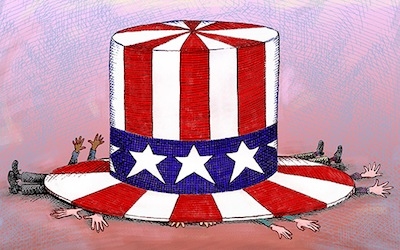
Illustration by Barbara Kelley
More specifically, the president himself through such colorful rhetoric has often outlined his all-encompassing “spread-the-wealth” ideology. Self-employed business people did not really “build” their successful operations without government help: “If you’ve got a business—you didn’t build that. Somebody else made that happen.” “Fat cats” and “corporate jet owners” have preyed on the body politic. Profit-driven doctors have unnecessarily lopped off limbs and yanked out tonsils. In a more philosophical vein, Obama advised that an individual should recognize a point beyond which he need not make any more money. The subtext is always that in this zero-sum world, personal success comes not through the individual’s efforts, but at the expense of someone else.
The Affordable Care Act was not intended just to extend health insurance to the uninsured or to decrease premium costs. Indeed, so far Obamacare has had the opposite effect of raising costs and increasing the numbers of the uninsured. Aside from growing government, increasing federal jobs, and limiting free choice, Obamacare federalized healthcare to ensure Americans fairness, defined as the economic equality of result as technocrats decide who had wrongly acquired too much healthcare, who unfairly had access to too little, and so on.
In that regard, the recent disclosures that some Obamacare “navigators” acted like politicized operatives (e.g., “turning Texas blue”), have sometimes offered advice to consumers to defraud the government, and often worked in league with liberal activist groups and the Democratic Party were not surprising. It is the duty of a progressive federal government to make the necessary redistributive changes to ensure that the more deserving obtained more healthcare and the less deserving were to pay for it. Only elites possess the savvy to oversee the necessary transaction for the ignorant. Or, as the President said of popular anger at Obamacare, “the majority of folks will end up being better off, of course… They don’t necessarily know it right [now].”
When Barack Obama advised his Latino supporters to adopt a political stance in which “We’re going to punish our enemies and we’re gonna reward our friends who stand with us on issues that are important to us,” he simply illustrated how the immigration debate had become driven by ideology. The issues are not non-partisan criteria about qualifications for legal immigration—education levels, skill sets, or capital. Nor is there much nonpartisan concern with border enforcement and the sanctity of federal law.
Instead, the influx of millions of mostly poor Latin Americans and Mexican nationals and their incorporation into the United States, as liberal citizen constituents and consumers of federal programs, drive the debate. Anything or anyone that might hamper those political efforts prompts the necessary philological rejoinders—both the overblown invectives of “nativist” or “racist” and the usual Orwellian euphemisms (“illegal immigrant” or “illegal alien” must be replaced by the politically-correct “undocumented worker”).
To make legal immigration entirely meritocratic and ethnically- and racially-blind would not necessarily ensure the sort of immigrant pool receptive to the Obama ideological agenda, and is therefore opposed by Democrats. Predicating amnesties on criteria like prior crime-free residence without dependence on federal and state entitlements would likewise be ideologically incorrect and not serve the larger agenda. No one believes that the present immigration debate is concerned with the bureaucratic dilemma over granting green cards or citizenship to Eastern European doctors or South Korean engineers.
There was little mystery over the IRS scandals of illegally granting an estimated $132 billion in earned income tax credits to the undeserving, coupled with the unlawful scrutiny of the tax-exempt status of Tea-Party-like organizations. No one initially assumed that an errant IRS either had been unduly stingy in paying credits to the deserving or had gone after the tax-exempt status of leftwing groups in equal number. For an IRS commissioner like Lois Lerner and others in the age of Obama, the noble ends of using government to achieve social and economic equality apparently condone the occasional unpleasant means of transgressing existing and supposedly unfair laws.
The worry in the billion-dollar federal settlements in the Pigford case was not, in the words of the New York Times, that “the $50,000 payouts to black farmers had proved a magnet for fraud.” Rather, regulations about timely applications and eligibility were irritable details that paled in comparison with the larger truth that poorer people deserved redistributive compensation from a sympathetic federal government whose chief responsibility is not to protect freedom and liberty but to find ways to mandate equality.
Quantitative easing and the policies of the Federal Reserve board are likewise not just aimed at spurring economic growth. Indeed, for the last five years the unemployment rate has never dipped below 7 percent and annual GDP growth has averaged less than 2 percent per annum—despite historical expansions of the money supply and de facto below zero interest rates when adjusted for inflation. In truth, those with passbook savings accounts lost value on their money; those who had not accrued capital were not affected; and borrowers became the beneficiaries of record low interest rates. Since classical times, the demand for equalization of income and capital was traditionally focused on a cancellation of interest rates.
In such an ideological landscape, almost everything is ripe for fundamental transformation, sometimes even in the most unlikely of areas. In the old days, the primary mission of NASA was to explore the heavens. Not necessarily so now. Obama NASA appointee Gen. Charles Bolden related that President Obama had given him three explicit directives. None apparently involved improving the operation of the agency or enhancing its explorative and scientific mission of space. Instead Bolden’s tripartite aims were to be entirely social, ideological, and political. One was to “re-inspire children to want to get into science and math.” A second was “to expand our international relationships.” A third, Bolden told news agency Al Jazeera, was “perhaps foremost,” and was “to reach out to the Muslim world and engage much more with dominantly Muslim nations to help them feel good about their historic contribution to science and engineering—science, math and engineering.”
Again, note the nature of the “foremost” ideological mandate: if Muslim nations do not feel “good” about their historical contributions to science and engineering, such depression could not be attributed to their present scientific ossification or Islam’s often historical subordination to Western science, especially after the fifteenth century. Instead, the discontent over the absence of scientific parity might be due to other more nefarious causes—and thus in part rectified by the power, wealth, and influence of a properly sensitive U.S. federal government.
Similarly, homeland security is no longer just about ensuring the safety of the United States. In a series of bizarre euphemisms—overseas contingency operations, man-caused disasters, work-place violence—Islamic terrorism was redefined as a spontaneous tragedy without specified causation. To the degree that the issue of radical Islam was unavoidable in the debate over U.S. domestic and foreign policy, the contortions only grew worse: we should not allow the mass murderer Major Hasan to prejudice the Army’s diversity program; the Muslim Brotherhood in Egypt was largely secular; and jihad is a legitimate tenet of Islam properly characterized as a “holy struggle,” and therefore improperly associated with radical Islamic terrorists.
The politicization of almost every aspect of American culture and politics over the last five years could easily be expanded. Traditional employment background checks are now “racist” given that minorities with higher crime records might be unduly affected. The 2009 reordering of the Chrysler creditors leap-frogged junior union creditors over senior bondholders—as enforcement of existing legislation becomes predicated on perceptions of social justice rather than faithfully executing settled laws on the books. Each new tropical storm launches a fresh debate about “climate change,” despite no evidence that recent weather is more prone to hurricanes or the planet has heated up over the last 15 years. Almost every new mass shooting offers occasion for mobilization to enhance existing gun control legislation.
What energizes this effort at holistic transformation is real anger at the perceived unfairness of the current democratic capitalist state—what Michelle Obama once referred to when she characterized America as “just downright mean.” Most of us unfortunately are unaware of these tensions in our otherwise “uninvolved, uninformed” lives. Indeed, in the words of former Energy Secretary Steven Chu, we are mere adolescents “just like your teenage kids” who “aren’t acting in a way that they should act.” The government defines “should”; the people do not.
The antidote has been for Obama administration technocrats to reexamine the way Americans go to the doctor, borrow money, pay their taxes, secure their borders, protect their country, explore space, and contemplate the weather. In each case, it turns out that someone wealthier and more privileged than the majority has done something wrong. The remedy is to provide more power and money to an all-knowing government elite who alone has the wisdom and morality to make things fairer by making them more equal. In our present landscape where everything must be political, the government’s hunt for victims and their oppressors has become ceaseless.







